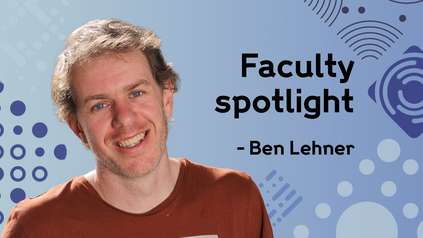Two Sanger scientists elected as Fellows of the Royal Society
Announced today (May 10), they are among 80 outstanding researchers, innovators and communicators from around the world recognised this year by the Royal Society, the UK’s national academy of sciences. The Fellowship is a testament to both researchers’ talent and the potential of their work to transform our understanding of genetics and genomics.
They join the ranks of Stephen Hawking, Isaac Newton, Charles Darwin and Albert Einstein in supporting the Society’s mission of championing excellence in research and science for the benefit of humanity. The Sanger Institute congratulates them on this well-deserved recognition.
Dr Phil Jones FRS is a Senior Group Leader at the Sanger Institute and a Professor of Cancer Development at the University of Cambridge. Throughout his career he has studied the earliest stages of cancer development in the skin and oesophagus.
His research approach combines deep sequencing, imaging, gene editing and single cell analysis to identify cancer-causing mutations, and understand how they affect the development of stem cells into cancerous cells.
Phil remains an active Consultant in Medical Oncology at Addenbrooke’s Hospital in Cambridge, and his commitment to clinical care profoundly shapes his research agenda. His overarching aim is to develop interventions that reduce cancer risk after exposure to cancer-causing agents.
“I am delighted to be elected to the Fellowship of the Royal Society. This honour is a tribute to the dedication of my research team and collaborators and support of my mentors and scientific colleagues over many years.”
Dr Phil Jones FRS, Senior Group Leader, Wellcome Sanger Institute and Professor of Cancer Development, University of Cambridge
Professor Ben Lehner FRS is a Senior Group Leader at the Sanger Institute and Coordinator and ICREA Professor at the Centre for Genomic Regulation (CRG), Barcelona, Spain. He has made fundamental discoveries in genetics concerning mutations and how they interact to determine the biology of individuals.
Among his discoveries are the reason behind why some genetically-identical individuals with a disease-causing mutation in a gene develop the disease while others don’t. He constructed the first ever genetic interaction map for an animal, to help identify functional relationships between genes. He has also demonstrated that inheriting epigenetic changes through environmental change is possible in animals.
Ben joined the Sanger Institute in 2022. His team’s aim is to produce models that allow researchers to understand, predict the action of, and engineer proteins – so that they can drive forward advances in bioengineering, human genetics and drug discovery. His work combines genomics, biophysics, mechanistic modelling and artificial intelligence at scale.
“I’m really thankful and also rather humbled by this recognition. I have been very lucky during the past 20 years – both to have worked with an amazing and diverse team of lab members, collaborators, colleagues and mentors and to have had the freedom and funding to pursue blue skies, curiosity-driven science. I’m also very excited to have joined the Wellcome Sanger Institute where we hope to take our research to another level and also to help build a new research direction in generative biology.”
Professor Ben Lehner FRS, Senior Group Leader, Wellcome Sanger Institute and Coordinator and ICREA Professor, Centre for Genomic Regulation (CRG), Barcelona, Spain
“I am delighted to welcome our newest cohort of Fellows. These individuals have pushed forward the boundaries of their respective fields and had a beneficial influence on the world beyond. Among this year’s intake are individuals who were at the forefront of the response to the COVID-19 pandemic response, and those working on global challenges, from TB to climate change. They are pioneering scientists and innovators from around the world who have confounded expectations and transformed our thinking. This year’s intake have already achieved incredible things, and I have no doubt that they will continue to do so. I look forward to meeting them and following their contributions in future.”
Sir Adrian Smith, President of the Royal Society
More information
About the Royal Society
The Royal Society is a self-governing Fellowship made up of the most eminent scientists, engineers and technologists from the UK and the Commonwealth. Its Foreign Members are drawn from the rest of the world. Fellows and Foreign Members are elected for life through a peer review process based on excellence in science. Each candidate is considered on his or her own merits and can be proposed from any sector of the scientific community. Every effort is made to encourage nominations of women candidates and candidates from the emerging disciplines.
There are approximately 1,700 Fellows and Foreign Members, including around 85 Nobel Laureates.
This year sees 59 Fellows, 19 Foreign Members and two Honorary Fellows elected from a group of around 800 candidates who are proposed by the existing Fellowship. This is an increase from the maximum of 52 new Fellows and up to 10 new Foreign Members, reflecting efforts to create a broader and more engaged Fellowship.
Find more information about the Royal Society Fellowship here.



